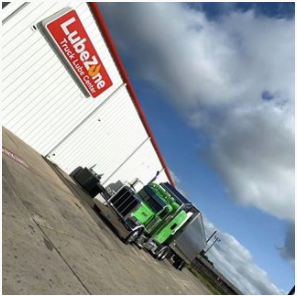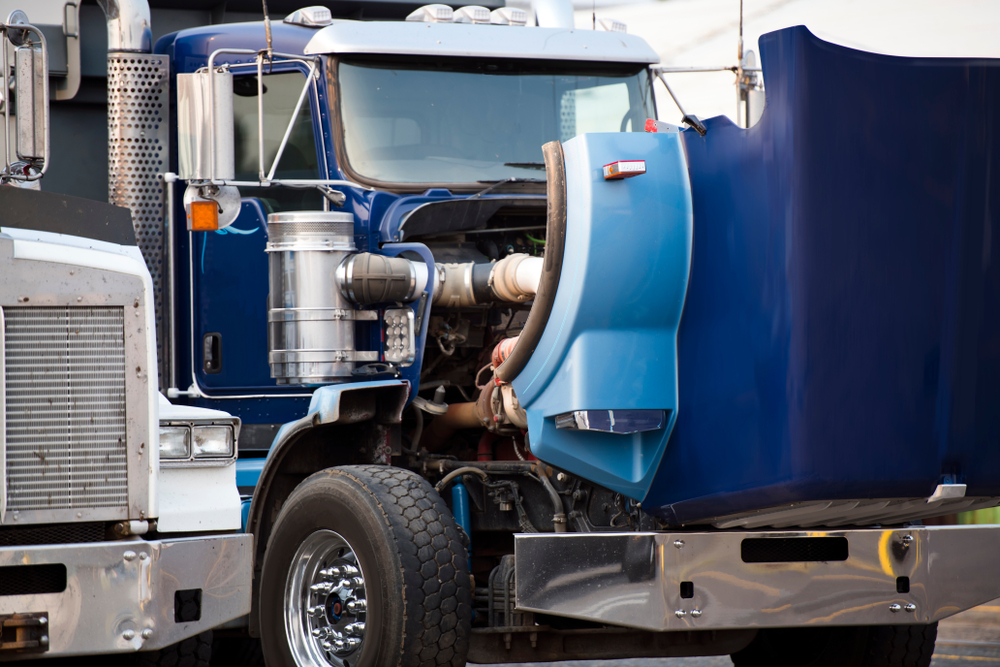
Top Things to Do in Lodi, California
October 22, 2024
The Benefits of Regular Oil Changes for Your Vehicle
October 30, 2024Recently updated on October 31st, 2024
Maintaining your diesel engine is one of the most important parts of your job because, without it, you can’t operate your truck. A well-maintained engine will last a long time and perform as expected for years to come reliably and efficiently. However, these engines require very specific maintenance and an intimate understanding of how they work to make sure you are avoiding costly breakdowns and maximizing your efficiency.
At LubeZone, we specialize in comprehensive services that are specifically tailored for the working semi-truck driver and the diesel engines they rely on. Our technicians will help keep your engine in top shape so you can have peace of mind on the road and maximize the efficiency of your operation through fuel economy, performance, and reliability alike.
Read on to learn about the most important diesel maintenance tips and strategies for keeping your engine healthy, and remember that your nearest LubeZone is always there to offer expert support and maintenance options.
Understanding Diesel Engines
Understanding how your engine works is the basis of understanding how to maintain it properly. Here is a brief overview:
The Basics of Diesel Engine Operation
Diesel engines use compression ignition, meaning that the air and fuel in the cylinders are compressed to such a high pressure and temperature that the fuel combusts. Gasoline engines use spark plugs to achieve ignition in the air-fuel mix, meaning that they operate at a much lower pressure and are not as efficient as diesel due to a diesel engine’s higher compression ratios and better thermal efficiency.
Diesel vs. Gasoline Engines: Maintenance Differences
Since diesel and gasoline engines operate on two very different principles, there are a number of maintenance differences as well. For starters, diesel engines are exposed to much higher pressures and temperatures, which means that they rely on a very clean fuel system to maintain efficiency and avoid clogging. Keeping your engine clean is the top priority, meaning both the interior and exterior. Certain aspects of engine maintenance should be left to professional mechanics. For instance, you should not try to change an air filter by yourself unless you have the proper training.
Diesel Engine Maintenance Checklist
Here is a simple checklist to keep in mind when you are planning your maintenance schedule to keep up with your rig’s needs:
Regular Oil Checks and Changes
Your oil is your engine’s lifeblood and should be changed according to the manufacturer’s maintenance recommendations to make sure you are getting proper lubrication and maximum efficiency. You can’t just use any oil: make sure the oil you use is appropriate for your engine, both the design and the age. LubeZone takes care of the selection process for you.
Fuel System Care
Your truck uses a lot of fuel, so as you can imagine the fuel filter sees a lot of use. Make sure that you regularly change these filters to keep clean fuel being efficiently delivered to your engine. A dirty fuel filter may lead to issues like clogging or bad combustion.
Air Intake System Maintenance
Since your engine operates based on air and fuel compression, it makes sense that it needs clean air. The air filters can get dirty or clogged, especially if you are operating in dusty or dry environments, so make sure that you know your truck manufacturer’s schedule and that you keep up with it.
Cooling System Upkeep
All of that high compression builds up a lot of heat in your engine, so your cooling system is hard at work all day keeping temperatures safe and avoiding unnecessary wear and tear. Make sure your coolant level are always at the correct level, and frequently inspect your radiator to make sure it’s not damaged or showing signs of leaking.
Emission System Checks
Your truck is equipped with a very complex emission control system to reduce particulates and exhaust where possible. Make sure that you keep up with regular checks of this system to avoid issues, keep your truck and the environment clean, and comply with emission standards.
Batteries and Electrical System Maintenance
Without a properly functioning electrical system and fully charged batteries, you can’t start and operate a diesel engine. Check your batteries’ connectors for corrosion, make sure the mounts are secure, and make sure the charging system is in top condition to avoid problems when starting your truck.
Belt and Hose Inspections
A visual inspection of your belts and hoses is an important maintenance step, as well. If you notice signs of wear, cracking, or fraying, make sure you replace them right away to avoid unexpected breakdowns and possible damage to your vehicle and engine. This is a simple maintenance step that will save you lots of trouble in the long run.
Optimizing Diesel Engine Health
Regular maintenance is absolutely essential, but there are a number of advanced strategies you can employ if you really want to take your diesel engine care to the next level. Some of these steps require the support of an experienced professional, and some you can handle on your own:
Engine Tuning
Your engine is equipped with an electronic control unit, or ECU, that controls things like fuel injection timing, boost pressure, and more. Changes to any of these settings will change the way your engine responds in certain conditions. By tailoring the ECU to the way you use your truck most often, you can maximize power production while minimizing fuel usage. This is best left to a professional who can help improve your fuel economy, increase your power, and lower emissions all at once.
High-Quality Fuel
This isn’t a very technical tip: using the best quality fuel available is one of the most actionable ways to protect your engine’s health and get the best output. High-quality diesel will prevent deposits from building up, keeping the engine running smoothly for a long time to come. Sometimes you don’t have a choice if you’re on a long haul in the middle of nowhere, but if you are doing local runs or have a set route, then it’s a good idea to figure out who has the best fuel and stick with them.
Fuel Additives
Additives can help keep your engine in good health by keeping your fuel injectors clean, helping with lubrication, and keeping your fuel running well in cold weather, to name a few. Fuel additives should be used according to a schedule because too many additives or using them too often can also lead to issues.
Troubleshooting Common Diesel Engine Issues
Even the most meticulously cared-for diesel engine can have issues, so it’s important that you stay attuned to what your engine is telling you. Here are a few common issues to look out for:
Hard Starting
If your engine is cranking but it isn’t starting, or you find that you are cranking it for much longer than normal, you may be dealing with a few different issues such as a weak battery or batteries, problems with your fuel delivery system, or a failed glow plug. Test your electrical system and batteries, replace your fuel filters, bleed your lines, and check on your glow plugs for a start.
Smoky Exhaust
Your exhaust system will always put out some smoke, but thick smoke might be telling you there is a problem. Black smoke might indicate that you aren’t getting full combustion, while blue smoke typically means that you are burning oil. White smoke might be an issue with unburned fuel or could be a cooling problem. Depending on the type of smoke, you will need to look into the specific related system. Changing filters, replacing worn parts, and cleaning your injectors are all good first steps for these issues.
Overheating
If your engine is giving high temperature readings or you are losing coolant, this can cause serious problems and may lead to a roadside emergency and permanently damage your engine. You’ll need to check on your radiator, hoses, and water pump, as well as your thermostat. Try to identify any leaks, clean your radiator, and consider replacing your thermostat if signs are pointing to it as the issue.
Professional Diesel Engine Maintenance: Knowing When to Seek Help
Some of the maintenance steps we’ve mentioned are things you can easily handle on your own, but it’s important you know when to call in professional help. Here are just a few issues it’s best you seek help for:
- Persistent performance issues
- Advanced diagnostic needs
- Complicated repairs
- Work that requires a lift
- Emission system issues
- Electrical and battery system problems
- Professional inspections
- Warranty and compliance
In addition to this major work, remember that things like oil changes and other lubrication work is often best left to an experienced team of pros. Doing your own work is satisfying, but it may be more cost-effective to pull into a LubeZone and let us get you right back on the road with a quick turnaround.
Our Commitment to Diesel Engine Care
LubeZone is committed to keeping our trucker partners on the road, and is committed to providing you with top-tier maintenance services. Swing by a LubeZone for comprehensive care like oil changes, fuel system cleanings, and cooling system checks to keep your diesel engine performing for thousands of miles to come. Are you ready to understand why LubeZone is so valued in the trucking community? Come on by today!

LubeZone is the fastest growing dedicated semi-truck service in the United States with locations in Texas, California, Oklahoma, North Carolina and Georgia. Our preventative maintenance solutions are designed to get the professional driver back on the road FAST.



